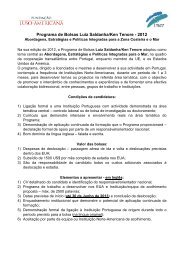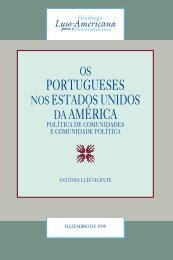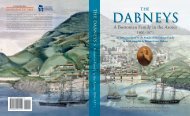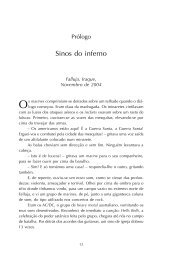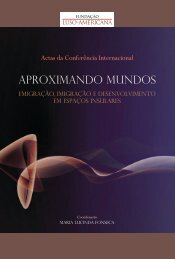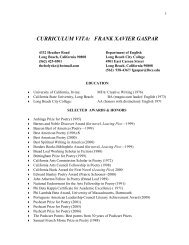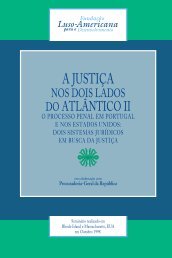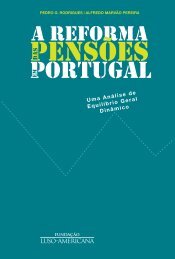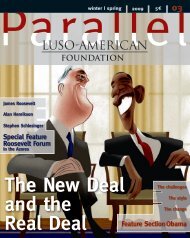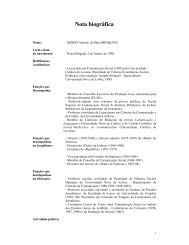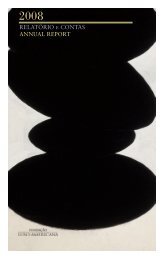A decade later - Fundação Luso-Americana
A decade later - Fundação Luso-Americana
A decade later - Fundação Luso-Americana
Create successful ePaper yourself
Turn your PDF publications into a flip-book with our unique Google optimized e-Paper software.
elentless – yet funny – barbs, and rock<br />
music and the Internet simply don’t exist).<br />
But this approach is more of an idiosyncrasy<br />
than a major fault. And the tone of<br />
the writing is much more balanced than<br />
in many of the author’s other pieces. In<br />
these essays, Steiner, never displays a modicum<br />
of paternalism or pretentiousness,<br />
even when he resorts to the old professorial<br />
saws about the decline of education.<br />
Divided into four sections, you can<br />
almost read this book of 400-odd pages<br />
straight through without stopping. His<br />
affection for such different authors as<br />
Cioran, Orwell, Céline and Brecht; his<br />
BooK revieWs<br />
painstaking examination of topics such as<br />
the Nuremberg Trials (see “From the<br />
House of the Dead,” a remarkable critique<br />
of the prison diaries of Nazi Minister<br />
Albert Speer); his sensitivity to the cultural<br />
import of non-literary works (such as<br />
the significance of Webern’s musical compositions<br />
to Central European culture and<br />
<strong>later</strong> the West in general), in sum, the<br />
unifying thread, created by the author, that<br />
runs through this vast array of themes,<br />
will impress even Steiner’s most faithful<br />
readers. The sections in the book, “History<br />
and Politics,” “Writers and Writing,”<br />
“Thinkers,” and “Life Studies,” are well-<br />
apportioned but are far from being decisive<br />
or even necessary. The chief merit of<br />
the way the essays is divided is that it does<br />
not detract from the richness of the texts,<br />
which, as any interested reader will soon<br />
find out, is almost impossible to do.<br />
1. The two-person translation was done by Joana Pedroso<br />
Correia and Miguel Serras Pereira. There are a few typos<br />
here and there and some clunkiness in the attempt to<br />
transpose Steiner’s expressiveness into Portuguese, but<br />
these do not ruin the end result. It is a pity though that<br />
the publication dates of the original texts have not been<br />
included. However, it doesn’t prevent them from being<br />
read, and the omission may have come from the Englishlanguage<br />
edition.<br />
Parallel no. 6 | FALL | WINTER 2011 81<br />
SUSANA BRITO



